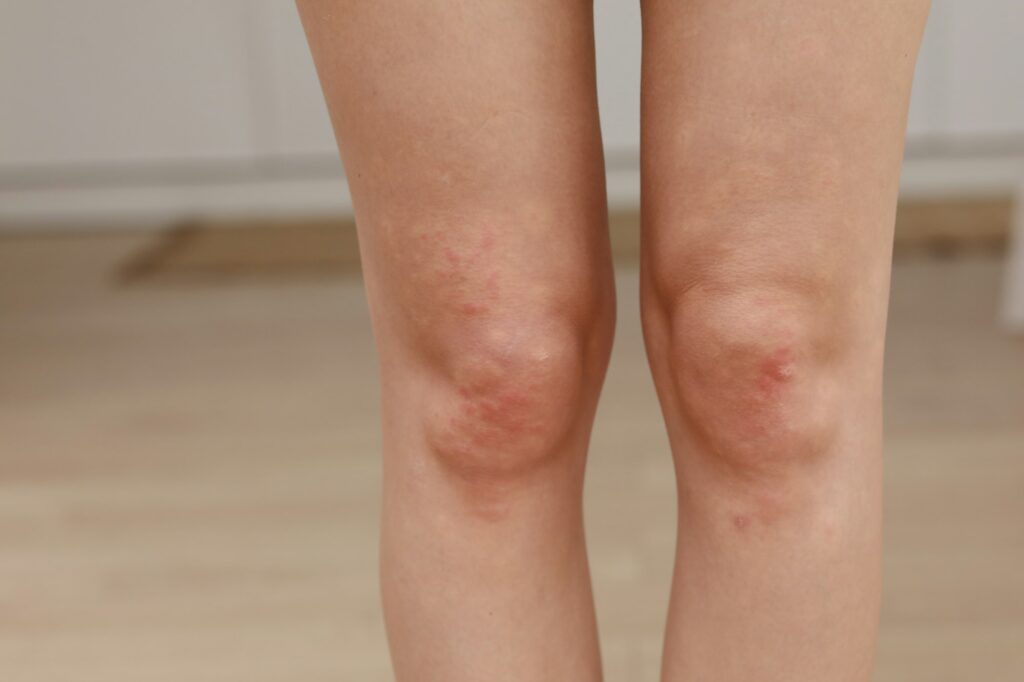benzoyl peroxide reaction - An Overview
benzoyl peroxide reaction - An Overview
Blog Article

Allergic Reaction to Acne Medication
Acne is a typical skin issue that influences many people throughout the world. Although you'll find many treatments readily available, ranging from around-the-counter creams to prescription prescription drugs, not all treatment options are suitable for everyone. One major concern is definitely the likely for an allergic response to acne medication. This article will take a look at what an allergic response to acne medication involves, the signs to watch out for, and the way to manage and forestall these reactions.
Comprehension Allergic Reactions
An allergic reaction occurs once the immune technique mistakenly identifies a harmless compound to be a danger and responds by releasing substances like histamines. These substances induce signs and symptoms that will range from mild to serious. In terms of acne medication, the components in these goods can occasionally trigger an allergic reaction.
Typical Acne Remedies
Right before diving into allergic reactions, It can be crucial to know the categories of acne medications that are generally applied:
Benzoyl Peroxide: An about-the-counter treatment that kills microorganisms and dries out the skin. Salicylic Acid: A different over-the-counter choice that helps to exfoliate the skin and unclog pores. Retinoids: Prescription medicines that advertise cell turnover and prevent clogged pores. - Antibiotics: Equally topical and oral antibiotics may be prescribed to cut back microorganisms and inflammation.
Hormonal Remedies: Prescription drugs like birth control supplements that control hormones and decrease acne.
Signs of an Allergic Reaction to Acne Medication
Recognizing the indications of an allergic response to acne medication is essential for timely intervention. Symptoms may vary depending upon the personal and the specific medication but frequently incorporate:
Skin Redness: Purple, inflamed skin is a typical sign of an allergic reaction. Itching: Persistent itching can reveal an allergic reaction. Swelling: Swelling of your facial area, lips, or tongue can be quite a extreme symptom. - Rash: A rash or hives may possibly establish about the pores and skin.
Trouble Breathing: In severe situations, an allergic reaction might cause problems respiratory, which demands quick clinical focus.
Case Experiments and Stats
To better comprehend the prevalence and effect of allergic reactions to acne medication, Let's take a look at some case scientific tests and figures:
Scenario Examine one: Benzoyl Peroxide Allergy
A 17-calendar year-outdated feminine begun using a benzoyl peroxide-dependent acne treatment. Inside of a few days, she found serious redness and itching on her experience. On consulting a dermatologist, she was diagnosed by having an allergic response to benzoyl peroxide. She was recommended to discontinue the medication and change into a milder, non-allergenic cure.
Situation Examine 2: Retinoid Response
A 22-calendar year-outdated male was prescribed a retinoid cream for extreme acne. After a 7 days original site of use, he made a rash and swelling all-around his eyes. His dermatologist verified an allergic reaction to the retinoid and suggested another cure system.
Statistics
Based on a analyze revealed inside the Journal of the American Academy of Dermatology, somewhere around 5-10% of people making use of topical acne remedies working experience some kind of allergic response. While most reactions are gentle, about one-two% of instances is often serious, necessitating speedy health-related intervention.
Running Allergic Reactions
Should you suspect that you will be experiencing an allergic response to acne medication, It is essential to get fast action:
Discontinue Use: End using the medication quickly. Check with a Healthcare Skilled: Seek advice from the dermatologist or healthcare service provider. Use Antihistamines: Over-the-counter antihistamines may also help reduce mild symptoms. Apply Chilly Compresses: Chilly compresses can decrease swelling and itching. Seek out Crisis Care: If you practical experience serious signs or symptoms like problems respiration, search for crisis health-related care promptly.
Preventing Allergic Reactions
Prevention is always better than remedy. Here are a few recommendations that will help prevent allergic reactions to acne medication:
- Patch Test: Usually carry out a patch test before employing a new acne medication. Implement a small amount to the discreet place of skin and wait 24-forty eight hours to see if any response occurs.
Examine Labels: Cautiously browse the ingredient record on acne drugs to identify probable allergens. Consult with a Dermatologist: Before beginning any new treatment, check with a dermatologist to ensure It truly is well suited for your skin sort. Start Little by little: Introduce new remedies gradually to monitor how the skin reacts.- Use Hypoallergenic Goods: Go for hypoallergenic acne treatment options which might be more unlikely to bring about allergic reactions.
Substitute Treatment options
In case you have knowledgeable an allergic response to regular acne drugs, you will find alternate therapies obtainable:
Normal Remedies: Ingredients like tea tree oil, aloe vera, and honey have anti-inflammatory and antibacterial Houses that can help handle acne without leading to allergic reactions. Light Therapy: Blue gentle therapy can get rid of acne-creating microorganisms without the utilization of chemical compounds. Dietary Modifications: Often, dietary improvements may also help manage acne. Reducing sugar and dairy ingestion has long been revealed to further improve skin wellness in some individuals.
Conclusion
Allergic reactions to acne medication can be distressing, but they are workable with the correct information and safety measures. By knowledge the indicators, taking fast action, and consulting healthcare professionals, you may efficiently regulate and prevent allergic reactions. Generally carry out patch exams, browse labels, and seek advice from a dermatologist before beginning any new procedure. If conventional acne drugs are usually not ideal for you, look at alternate treatments which are less likely to result in allergic reactions. Your journey to obvious skin doesn't have to become hindered by allergies; with the right approach, you can find a treatment that actually works in your case. Report this page